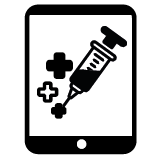Challenges
According to the Millennium Goals Report 2015, the worldwide maternal mortality ratio has declined by 45% since 1990. The global under-five mortality rate has dropped by more than half. Yet, the maternal mortality rate is 14 times higher in developing countries than in developed countries. Around half of all respective deaths occur in Sub-Saharan Africa and one third in South Asia. Together they account for 86% of all maternal deaths. Similarly, three million under-five deaths occur in sub-Saharan Africa and 1.8 million deaths in South Asia. In 2015, around 16,000 children under five are still dying every day. The leading causes of death are preventable causes such as pneumonia, malaria and diarrhoea. Aggregate efforts have been made to reduce maternal and child mortality rates. Best practices show that interventions can be very simple and cost effective. For example, training traditional birth assistants and providing clean delivery kits have major impacts on the health of a mother as most deaths occur during birth or right afterwards. A case in point for interventions targeting child mortality are measles vaccinations. These programs saved almost 16 million deaths between 2000 and 2013. Regarding Sexual and Reproductive Health and Rights (SRHR), cultural norms and stigmatization of contraceptive use are still major barriers in many developing countries. Family planning interventions have resulted in a worldwide increase of contraceptive use of 10% over the last 25 years.
GFA approach
 Project ownership by the client is crucial to GFA. In order to ensure projects' sustainability, GFA helps developing national capacities at all levels. Local clients taking in our consultancy services are predominantly ministries of health and social welfare. GFA has more than 30 years of hands-on and up-to-date experience in project management and implementation.
Project ownership by the client is crucial to GFA. In order to ensure projects' sustainability, GFA helps developing national capacities at all levels. Local clients taking in our consultancy services are predominantly ministries of health and social welfare. GFA has more than 30 years of hands-on and up-to-date experience in project management and implementation.
GFA services
GFA offers a wide range of services in this field. The ultimate goal is to reduce maternal, neonatal and postnatal mortality rates by providing access to quality health care and empowering women regarding SRHR. On-the-job trainings and workshops on topics such as Emergency Obstetric Care (EmOC), Basic Emergency Obstetric Care (BEmOC) and Comprehensive Emergency Obstetric Care (CEmOC) are developed and offered to local medical staff. In order to raise target groups' awareness on key health issues, adapted information, education and communication (IEC) campaigns are developed. Moreover, advocacy and capacity development are main elements of Medica’s Services.
Contact
 Eva Schildbach
Eva Schildbach
Head of Health Department
E-mail: eva.schildbach[at]gfa-group.de







